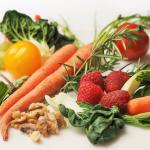A few things can be said with certainty about “non-GMO” food labels.
Food & Nutrition
As part of the European Union, the UK was a stronghold of anti-GMO opposition. Post-Brexit, however, Britain is changing its outlook for the better.
Some self-absorbed gym rats will go to extreme lengths to look like bigger idiots more ripped than the other self-absorbed gym rats scurrying around.
Now there is no argument for the need of communities to improve their public space infrastructure to allow for the availability of parks, bike lanes, walking paths, smoking policies, faith-based organizations, improved educational efforts, etc., a
“Celebrities are particularly influential. On social media, celebrities are perceived as fellow users but also as more credible than ordinary users and more trustworthy than television advertisements.
Bacteria cause most foodborne illnesses, particularly E. coli, Salmonella, or Listeria.
“This Roundup ingredient might cause cancer—but the EPA won’t ban it,” Popular Science told its readers in a terribly misleading January 13 story about the weedkiller glyphos
The USDA's “bioengineered” label now affixed to many products in grocery stores is a massive waste of money that will offer consumers no useful safety or nutrition information, something the
The alterations in our menus in reporting calorie intake come from a new study reported in JAMA Network Open.
Activist groups have attacked all sorts of alleged villains for undermining public health—Big Ag and Big Pharma being the two most common punching bags.












